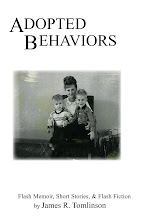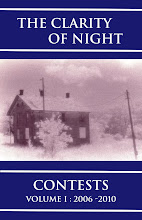The First Mile
I think about Ray and Rosalie and the Read-to-Me program they volunteered for decades ago at the Macomb Correctional Facility. Back in
the late 90’s I rarely went on vacation because my boss believed in arranging
for substitute teachers to keep the classrooms open. I hated the idea and for good reason: the
first prison I taught in in Detroit, my students distracted the substitute teacher
and stole her shoes. But Ray was different. He was mild-mannered, observant, and unafraid of writing tickets on misbehaving inmates. I
liked Ray. Ray was the perfect fit for my classroom. Also, the Read-to-Me
program was invaluable. Prisoners would select a children’s book and Ray and
Rosalie made them practice reading it, then they’d record these men's voices on cassette
tapes which would get sent to their children—what better way to help these
fathers stay in contact with their kids.
Somehow, I had lost touch with Ray due to an ongoing
rotation of school principals. I remember our last phone conversations. He
wanted to know if my new boss—who had already cut the Read-to-Me program—was on board with keeping substitute teachers and whether I would advocate for his return. I told him I’d try. And I did try. Unfortunately, my
new boss wasn’t interested.
Our last conversation was muddled in my brain. I’m not
sure who called who. Perhaps it was me. But I do remember a conversation about
my divorce and my teenage daughter who refused to have any contact with my side
of the family. Ray was supportive and we agreed to keep in touch. Yet, the years
rolled by. Somehow, I had learned that Ray retired from his public school teaching job. I followed suit a dozen years later.
The Second Mile
I thought about how quickly I escaped from the prison:
- April 2021, I remarried.
- October 2021, I downsized.
- January 2022, I retired.
I moved to a small city where Ray lives less than a mile from my new house. For whatever reason I failed to visit him and I’m not sure why.
I pause my GPS. Here I am at the doorstep of a condo. I see an NRA sticker on the window. Ray never seemed like a die-hard right-to-bear-arms kind of guy. I check the address I had written on the blue Post-it note and ring the doorbell.
Rosalie opens the door just a little bit.
“Hi Rosalie,” I say. “Is Ray here?”
“No.”
“You probably don’t remember me,” I tell her my name, where I retired from, and how I admired their volunteer work at the prison.
“I remember you,” she says. “Do you see your daughter?”
“No.” An awkward silence falls between us.
“I’m sorry to hear that,” she replies.
“Do you know when Ray will be back?” More silence.
“Ray’s dead.”
I tell her how bad I feel not being able to see him again, “When did he pass?”
I learn that he died in December 2021. “Ray had Covid,” she says and explains how a doctor came to the house to give him an infusion. “But it really wasn’t working.” Rosalie’s eyes start to water. “He would have been on a ventilator,” she continues. Then Rosalie adds more to my confusion. “He didn’t die from Covid.”
I don’t know what to say.
“I left him alone for a while. When I returned, I didn’t know where he was. I found him in the basement. He shot himself.” Rosalie sees the anguish on my face and stops.
Again, I apologize for not knowing. We agree to meet for coffee sometime. I say goodbye and start my GPS.
The Third Mile
With GPS paused, I enter the library and beeline it to the memoir stacks. I randomly select two books based on their covers:
Granger Smith’s Like A River—Finding the Faith and Strength to Move Forward after Loss and Heartache.
Chip St. Clair’s The Butterfly Garden—"This book gives one the courage to look within and provides everlasting hope in the human spirit.”
At the check-out, I tell the clerk that I have a Social Security book on hold and give her my card. She finds it and adds it to my collection.
“Will that be all?” she says.
“Yes,” I say, “that will be all.”
I go outside. I start my GPS. I walk home.







